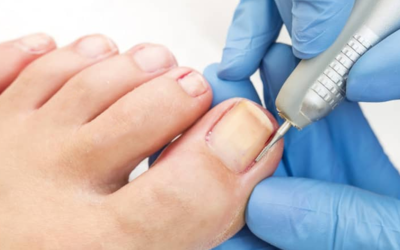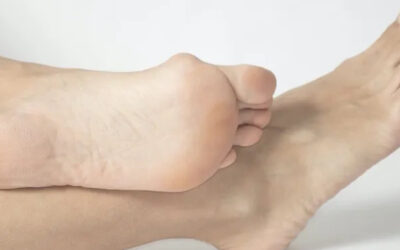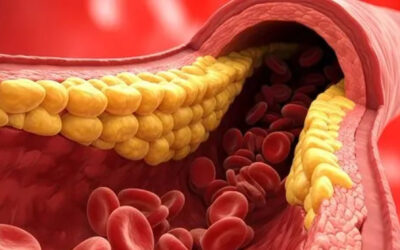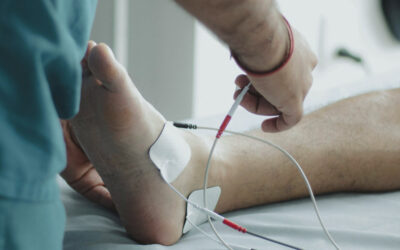Peripheral Artery Disease (P.A.D.) is a serious condition that affects millions of people worldwide, often developing silently until it reaches advanced stages. Characterized by the narrowing or blockage of the arteries in the limbs, particularly the legs, P.A.D. can lead to complications such as pain, reduced mobility, and even the risk of limb amputation if left untreated. While medical treatments play an important role in managing P.A.D., lifestyle changes are equally vital in both managing the condition and preventing its onset. At Capital Foot Care, our team, including Dr. Muhammad A. Khalid, Dr. Fritz-Andre Duterlein, and Dr. Herman Zarate, is dedicated to providing comprehensive care to help you manage P.A.D. and improve your quality of life.
Why Lifestyle Changes Matter for P.A.D.

P.A.D. occurs when fatty deposits build up in the arteries, restricting blood flow to the limbs. This reduced circulation leads to pain during activities like walking and increases the risk of severe complications, including heart attacks and strokes. Fortunately, P.A.D. is largely preventable and manageable through proactive lifestyle changes. By making certain adjustments in your daily routine, you can improve circulation, reduce symptoms, and significantly lower your risk of developing this condition.
Key Lifestyle Changes to Manage and Prevent P.A.D.
Here are some of the most effective lifestyle modifications you can make to manage or prevent P.A.D.:
- Quit Smoking
Smoking is one of the most significant risk factors for developing P.A.D. Nicotine constricts blood vessels and damages the arterial walls, making it harder for blood to circulate properly. Quitting smoking can dramatically improve your vascular health and reduce your risk of complications. If you currently smoke, seeking support through cessation programs, counseling, or medications can help you quit successfully.

- Exercise Regularly
Physical activity is crucial for improving blood circulation and overall cardiovascular health. Walking, in particular, is highly beneficial for P.A.D. patients. It may be painful at first, but regular walking can help increase the distance you can walk without discomfort by encouraging the body to form new, healthier blood vessels. Aim for at least 30 minutes of moderate exercise, such as brisk walking or cycling, several times a week. Start slowly if you’re new to exercise and gradually increase your activity level.
- Maintain a Healthy Diet
Eating a heart-healthy diet is essential for preventing P.A.D. and managing its symptoms. A diet rich in fruits, vegetables, whole grains, lean proteins, and healthy fats can help reduce cholesterol levels, lower blood pressure, and prevent plaque buildup in the arteries. Focus on:
- Omega-3 Fatty Acids: Found in fish like salmon and walnuts, omega-3s can help reduce inflammation and improve heart health.
- Fiber: High-fiber foods like oats, beans, and whole grains help lower cholesterol and maintain healthy blood sugar levels.
- Antioxidants: Fruits and vegetables high in antioxidants can help protect blood vessels from damage.

Avoid processed foods, sugary snacks, and foods high in trans fats, which can contribute to plaque buildup and worsen P.A.D. symptoms.
- Manage Blood Sugar Levels
If you have diabetes, it is crucial to keep your blood sugar levels under control. High blood sugar can damage blood vessels and worsen circulation issues, increasing the risk of P.A.D. Work closely with your healthcare provider to manage your diabetes through medication, diet, and exercise.
- Control Blood Pressure and Cholesterol
High blood pressure and cholesterol are significant contributors to the development of P.A.D. Maintaining healthy levels of both is key to preventing the progression of the disease. Your healthcare provider may prescribe medications to help manage your blood pressure and cholesterol. In addition, lifestyle changes such as reducing salt intake, exercising regularly, and eating a balanced diet can help keep these levels in check.
- Maintain a Healthy Weight
Carrying excess weight puts additional strain on your heart and blood vessels, contributing to the development and progression of P.A.D. If you’re overweight, even modest weight loss can improve circulation and reduce your risk of complications. Focus on sustainable lifestyle changes like eating a balanced diet and incorporating regular physical activity into your routine.
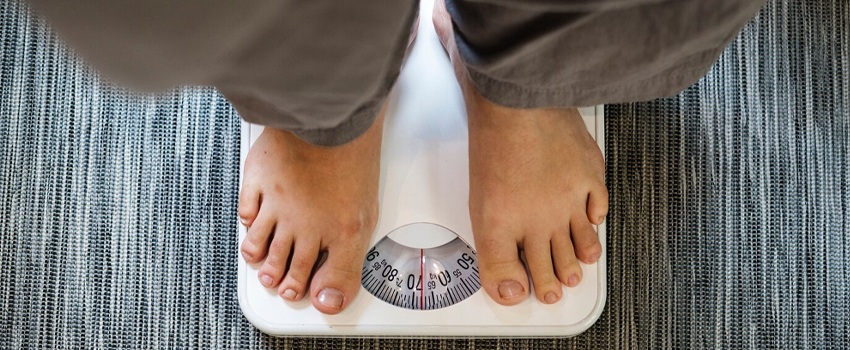
- Regular Check-ups
Routine medical check-ups are essential for detecting P.A.D. early, especially if you have risk factors such as smoking, diabetes, or a family history of vascular disease. Early detection allows for timely intervention and can prevent the progression of the disease. At Capital Foot Care, we offer comprehensive screenings and personalized care plans to help manage your vascular health.
Trust Capital Foot Care for Your Vascular Health
At Capital Foot Care, our experienced podiatrists—Dr. Muhammad A. Khalid, Dr. Fritz-Andre Duterlein, and Dr. Herman Zarate—are committed to helping you take control of your vascular health and manage P.A.D. effectively. Through a combination of medical treatments and lifestyle guidance, we work with you to reduce your risk of complications and improve your quality of life.
For more information or to schedule a consultation, contact us at 301-927-FOOT (3668) or email us at [email protected]. We serve patients across several convenient locations:
- 6510 Kenilworth Ave. Suite 2300, Riverdale, MD 20737
- 7610 Carroll Ave. Suite 380, Takoma Park, MD 20912
- 8816 Jericho City Drive, Largo, MD 20785
- 2041 Martin Luther King Jr Ave SE, Suite 103, Washington, DC 20020
- 1328 Southern Ave SE, Suite 209, Washington, DC 20032

Managing and preventing Peripheral Artery Disease requires a proactive approach that includes making key lifestyle changes. From quitting smoking and exercising regularly to maintaining a healthy diet and controlling blood pressure, these modifications can significantly reduce your risk of developing P.A.D. or help you manage existing symptoms. At Capital Foot Care, we’re here to support you every step of the way with personalized care and expert advice.


